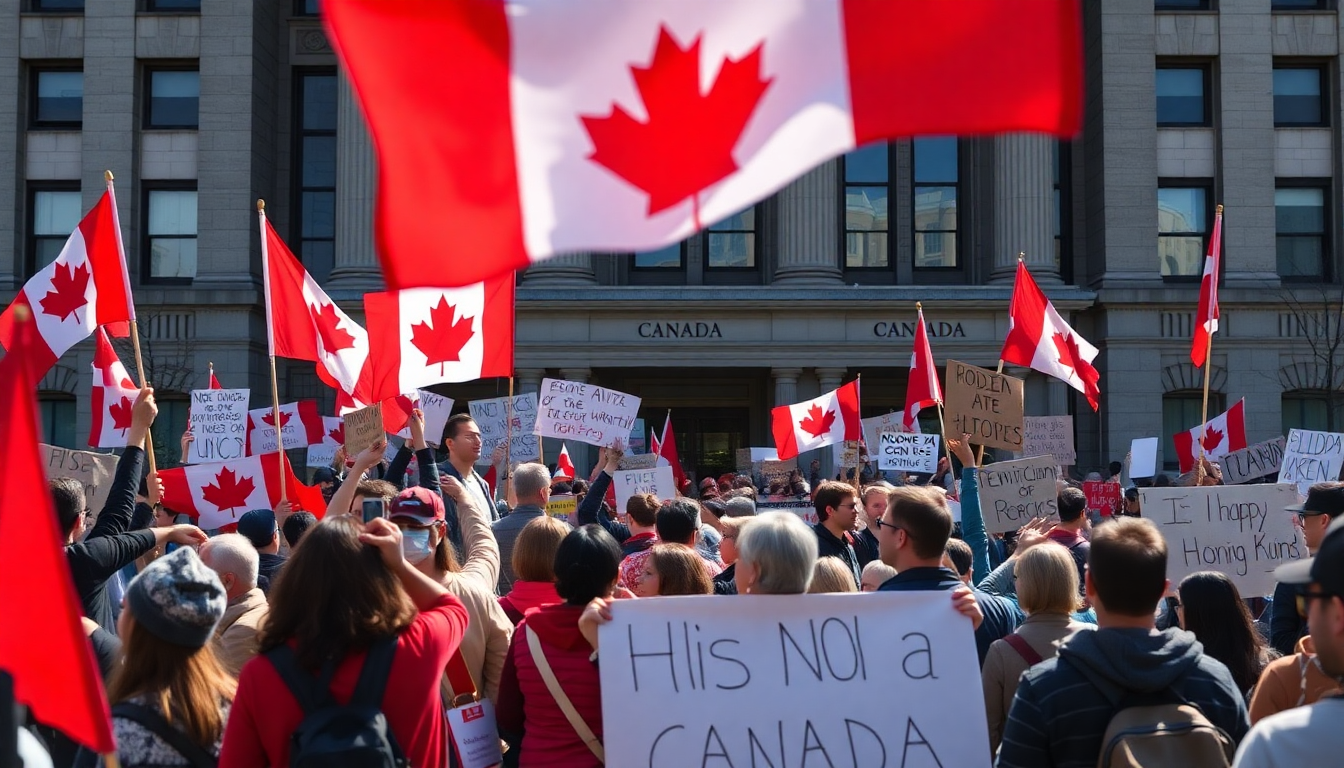Table of Contents
In a bold move that has caught the world’s attention, the Canadian government has stepped up to condemn the recent actions of Hong Kong authorities, who have issued international arrest warrants for a group of pro-democracy activists. Among those targeted are individuals with Canadian ties, which has added fuel to the already fiery tension between Canada and the People’s Republic of China over human rights and political repression. But why does this matter so much?
What’s Behind the Arrest Warrants?
Just last Friday, Hong Kong police announced they were offering rewards for information leading to the capture of 19 activists living overseas. These individuals are accused of being part of a so-called subversive organization that allegedly violated a national security law imposed by Beijing. It’s a complicated situation, especially since some of the accused are Canadians, raising questions about the protections Canada offers its own citizens.
Global Affairs Canada didn’t hold back, calling these actions a troubling escalation of what they refer to as ‘transnational repression.’ This term describes how authoritarian regimes extend their influence beyond their borders to stifle dissent and scare critics living abroad. So, what does this mean for Canadians? The government is making it clear that such tactics are unacceptable, especially when they threaten the rights and freedoms of those living in Canada.
The Hong Kong Police Force claims that the targeted group, known as the Hong Kong Parliament, is pushing for self-determination and a local constitution. However, authorities allege that this group is resorting to illegal methods to undermine the Chinese government. Are these accusations valid, or are they simply a means of silencing opposition?
Why This Matters: The Bigger Picture
The issuance of these arrest warrants is not an isolated incident; it aligns with a broader pattern of behavior from Hong Kong authorities over the past two years. They’ve been going after various pro-democracy activists who have relocated abroad. High-profile figures like Nathan Law and Ted Hui have faced similar legal challenges, including having their passports canceled under the national security law enacted last year. What does this say about the state of democracy in Hong Kong?
Critics argue that these actions not only trample on civil liberties but also threaten the sovereignty of countries like Canada, which has long been a haven for those fleeing oppressive regimes. Global Affairs Canada’s statement reinforces the Canadian government’s resolve to protect its citizens from foreign repression, highlighting the geopolitical stakes in this escalating saga.
Moreover, the potential impact of these actions extends beyond individual activists. The Canadian government has raised alarms about the climate of fear these tactics could foster within Chinese communities living abroad. Reports suggest that Hong Kong authorities are using digital strategies to infiltrate and intimidate these communities, creating a complex web of international implications.
Global Reactions and What’s Next?
This situation has stirred reactions from other nations, too. The U.K. Foreign Secretary and Home Secretary have jointly condemned the bounties placed on individuals in Britain, calling them yet another instance of transnational repression. This show of international solidarity among democratic nations underscores a shared concern over human rights abuses perpetrated by authoritarian regimes. So, how will the global community respond moving forward?
As the investigation into these warrants unfolds, Hong Kong police have hinted at possibly increasing the rewards for information leading to more arrests. The call for activists to return and face the legal system raises urgent questions about their safety and freedoms. Are they willing to risk everything for their cause?
For activists like Elmer Yuen, the backlash against these warrants might actually galvanize support for their movement. They argue that such aggressive actions by the Hong Kong government reveal its growing desperation. The next steps taken by both the Canadian government and these activists will be pivotal in shaping the future of international relations concerning human rights and political freedom. Will we see a united front against oppression, or will fear continue to dictate the narrative?


